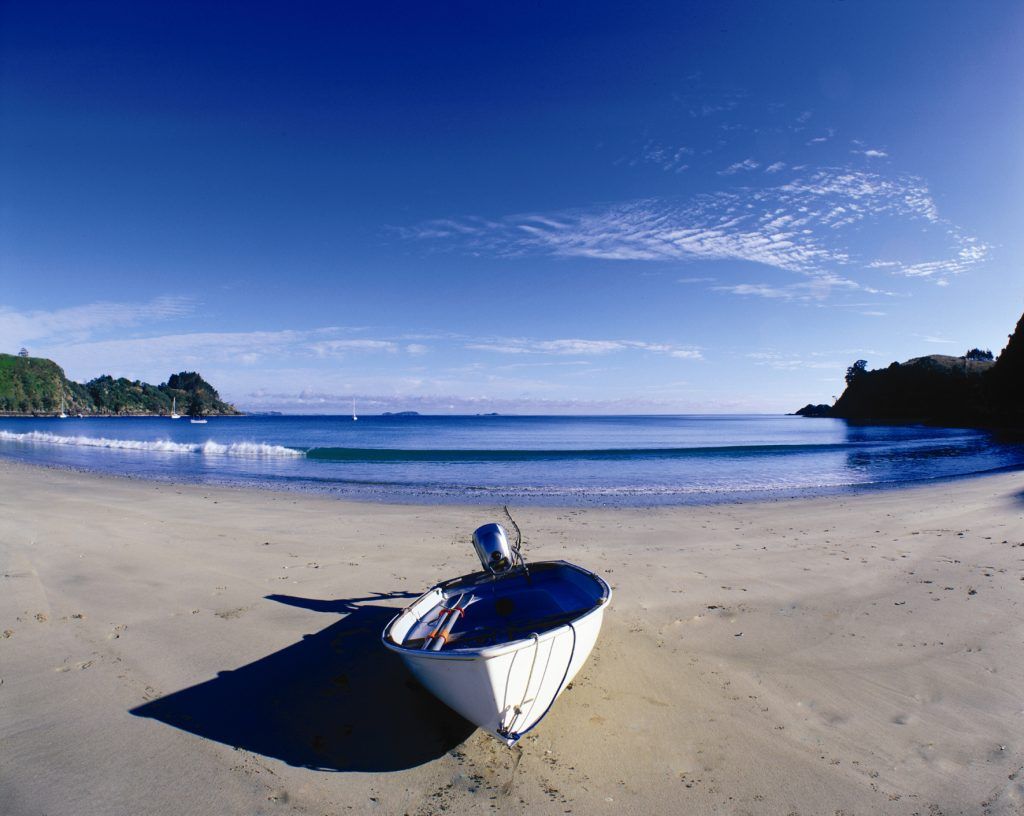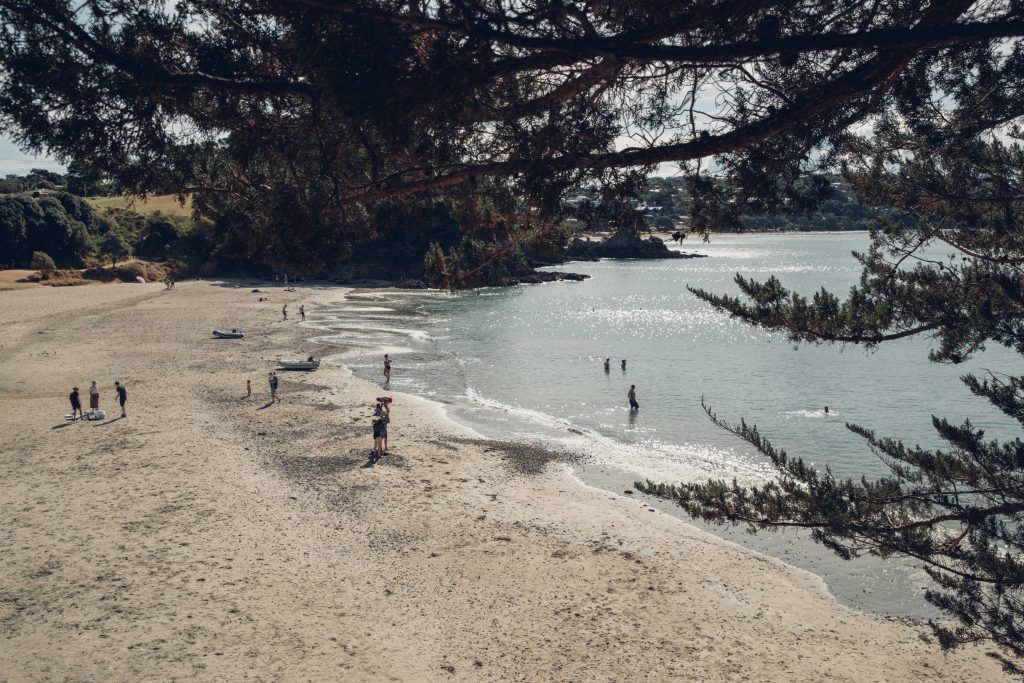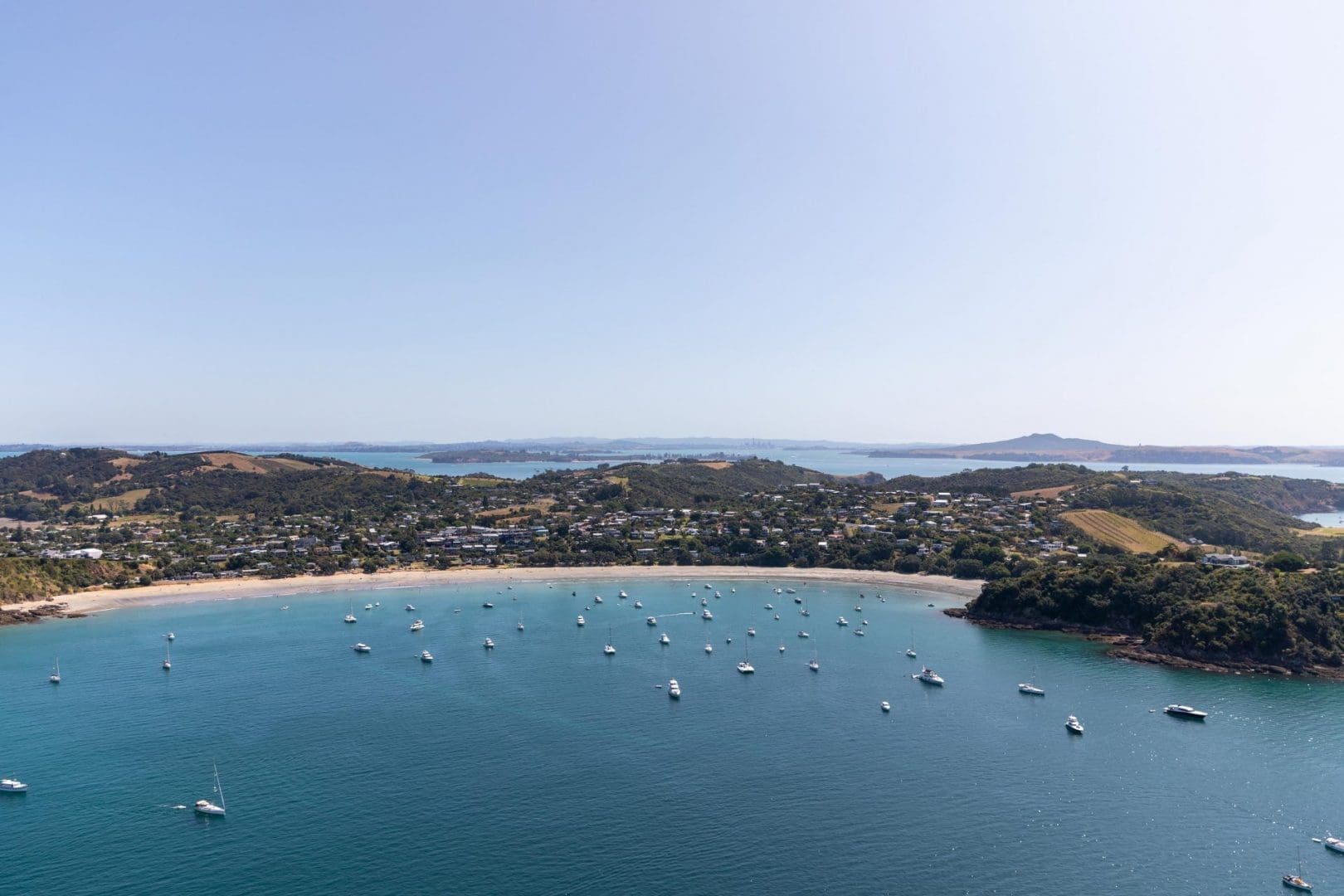Slow Down – You’re Here
It’s time for a short holiday getaway but this time, thanks to COVID, I’m not headed to the airport – but to the Ferry Building at Britomart for a forty minute trip over to Waiheke. Though it is not a foreign destination – Waiheke IS overseas! So it will do nicely.
The third most populated island in New Zealand Waiheke is a much misunderstood place. Depending on who you talk to, it’s a hippie drop out zone where flower power relics of the 60s are still hanging out in their faded tie-dyed overalls – or it’s a Martha’s Vineyard playground of the rich and famous stacked with absurdly over decorated mansions. The kind of place where Kiwi celebrities move once they’ve made their pile, and where American merchant bankers have a bolt hole from rioting at home and where global brands like Sting stop by on their superyachts.
Well, yes, a lot of the above is true. But it is only part of the story because the above people only make up a small percentage of the total Waiheke Island population. By far the majority are Waihekians (proudly resident 20 years or more); Waihitians (resident under 20 years), Originals (lifers) and Locals (‘I don’t get into any of that marketing stuff mate, I just live here’).

For most of these people, life isn’t as easy as the brochure makes out. It is a lot more expensive to live over here, largely because pretty much everything has to be shipped over; fruit, vegetables, clothing, materials, even bread although there are bakeries here now. There is no water supply, so you have to have a rainwater-collection cistern or freshwater bore on your property just to survive, there is no sewerage system either so everyone has to have their own septic tanks. The roads are narrow and windy, with only one two hundred metre section not testing out the forearm flexibility. There are no McDonalds, KFCs or chain store of any kind and only one supermarket; itself barely ten years old. Jobs over here are limited and the city commute is a real grind – unless you live nearish Matiatia/Kennedy Point and work nearish Britomart/Half Moon Bay.
Yet Waiheke’s population continues to rise year-on-year with nearly 10,000 residents living there more-or-less permanently now. And this figure doesn’t include the other influx of seasonals who mainly come over to summer on the island, plus those who rent out their homes to the Summerers and flee to more obscure climes whilst all the fair weather tourists are around.
Why?
Because they are real people over here. You know, the kind you read about in Barry Crump books or heard Grandma or Granddad wah on about at length while you were a kid. The kind of old school Kiwis you didn’t know existed anymore who look out for each other come rain or shine. And they make Waiheke the kind of place where bus stops aren’t necessary because the bus will drop you off right outside your house; where the taxi driver will drop off the wallet you left on the roadside and the local fisherman will leave a fresh juicy snapper on your doorstep for lending him your garden hose the other day. That’s right, they actually still have a Favour Bank over here where if you do someone a favour, you’ll get it back one day; guaranteed. Sure, there is the odd rip-off dickhead around but they usually don’t last. Even the wealthier types get into the spirit of cooperation, as the normally competing wineries will help each other out with things like rabbit control, delivery costs and casual labour sharing. And it’s been at its zenith lately during this COVID nightmare when so many people have lost their jobs and/or businesses. I’ve heard of decent families being helped out with multiple anonymous small donations into their bank accounts just to ‘tide them over’ until they can get on their feet again. The local marae too is always helping folks out, any food left over from weddings or parties held there always seems to find its way to those who could use it most. Though no one takes credit for any of this as; ‘the kumara never sings about how sweet it is.’

Of course, the flip side of such a strong local community bond is the perception that newcomers will never be fully accepted as a local – that you’ll always be some sort of untrustworthy Outsider, who will never understand ‘The Island Way’. But I talked to the locals about this and they said that while it’s still there a bit, it’s not quite so bad now. With so many new arrivals over the last thirty years, the new Waihekians and Waihitians by far outnumber the original Originals so a bit of sanity has to prevail. These days newcomers are judged by the attitude and behaviour they import rather than the number of years they’ve clocked up on sacred local soil.
And that’s encouraging because if COVID has taught us anything, it’s that you don’t actually have to have staff strapped to a desk 24/7 in order to successfully run a business. So, going forward we may not have to go into the office so regularly to keep our jobs, and thus reduce our commute. If that proves to be the case then enjoying the lifestyle of an unspoiled slice of Kiwiana like Waiheke becomes more and more feasible.
The thing to remember if you’re lucky enough to be able to relocate to somewhere like Waiheke or any other rural gem; it is only unspoiled because no one has spoiled it. And it’s up to us newcomers to make sure it stays that way, so we need to do the changing more than the locals do. Think of it like the sign says as you drive away from the car ferry at Kennedy Point; ‘Slow down, you’re here’.

